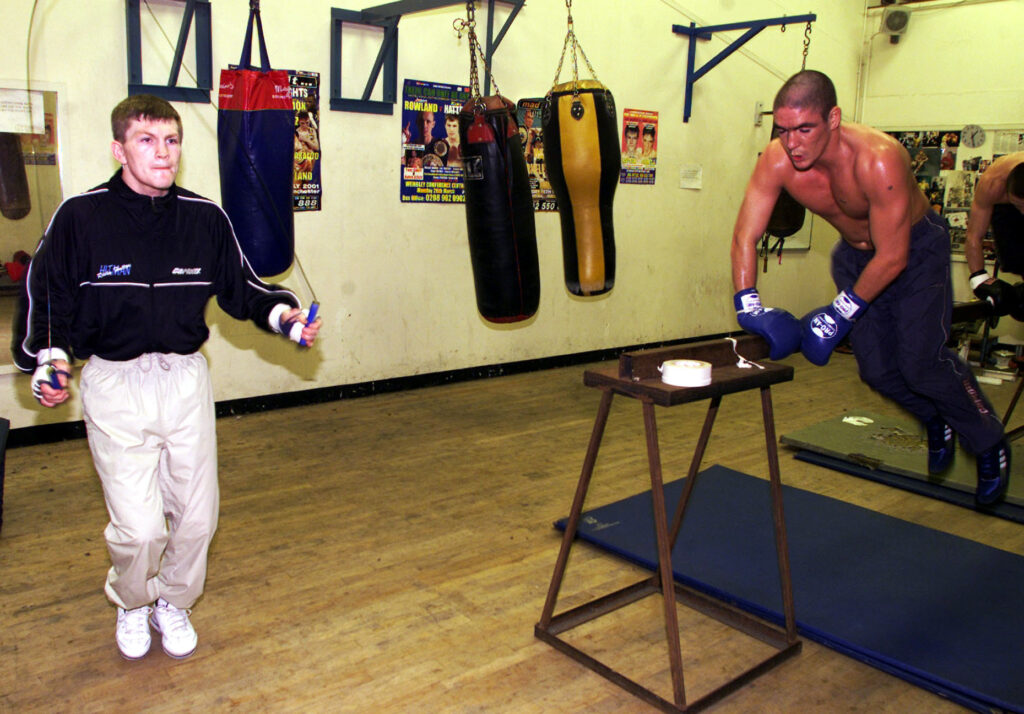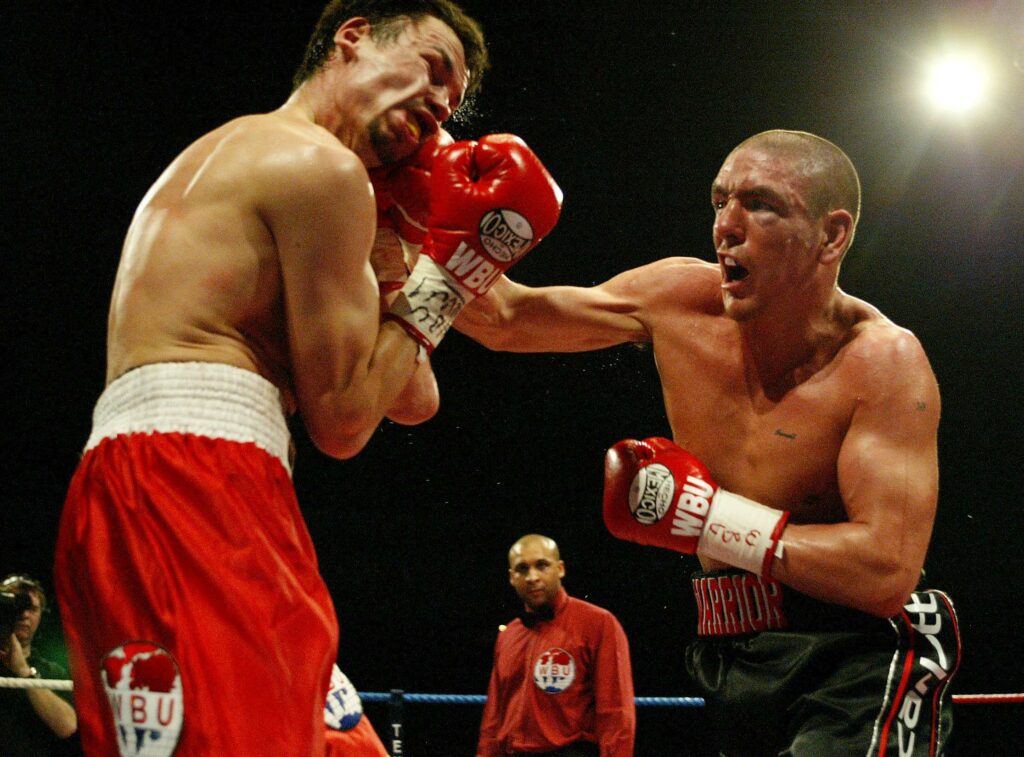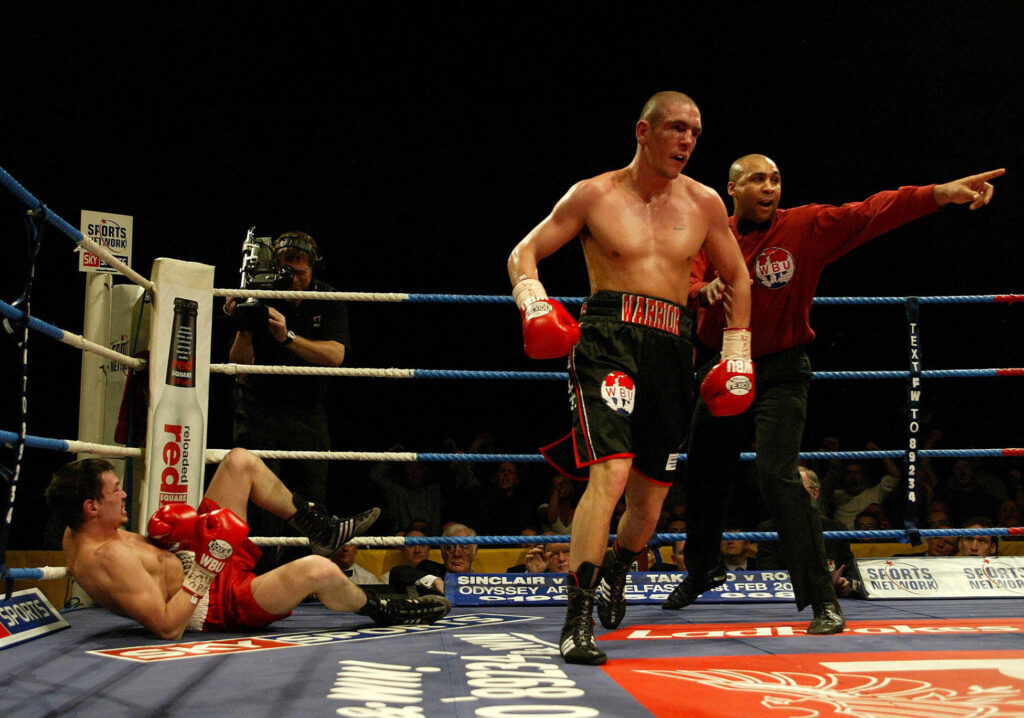Life after boxing isn’t easy for any fighter. But Anthony Farnell wasn’t any fighter. Cut down in his prime after his annual MRI scan revealed complications, the beloved Mancunian retired aged 26, just when he was going through the best years of his career.
It wasn’t just the best years of Farnell’s career, however; it was the glory years of the Manchester boxing scene. The likes of Michael Gomez, Stephen Foster Jr, David Barnes, Matthew Hatton and Michael Jennings were on the rise in Manchester with Ricky Hatton emerging as a global superstar during this period, topped by his victory over IBF 140lbs champion Kostya Tszyu at the MEN Arena in June 2005.

Photo: Nick Potts/Press Association.
Now a respected trainer, ‘Arnie’ reminisced with Boxing Social about the glory days of Manchester boxing: “I loved every minute of it, boxing at that time was brilliant in Manchester. We were all mates and we would all share the same bills. Fighting alongside the likes of Michael Gomez and Ricky Hatton was fantastic and I’ve got some memories that I will cherish forever from those days. It must have been a bit like Manchester United was back in the 90s with the Class of ’92. They were local lads living the dream with their mates and we were, too.
“The atmosphere back then was like nothing I’d ever seen,” said Farnell. “It was a unique time in British and world boxing. Working class people were out supporting working class lads. It was like most of the estates in Manchester would come to the shows. There wasn’t any trouble either, it was a party atmosphere. Everybody got on and had a good time. The support the fighters made those special nights what they were. Without the fans in Manchester, it wouldn’t have worked as it did.”

Photo: Nick Potts/Press Association.
The world after boxing is never a straightforward place for any fighter. Boxers have been known to enjoy a drink or two but in a lot of unfortunate cases this can spiral out of control. Depression is a common issue within sports but boxing doesn’t seem to have an infrastructure to help former professional participants for what comes afterwards.
“Life without boxing was hard. I didn’t take it well initially and I drank a lot for a period before I had to get a grip of myself and put my energy into something new – and that was training people,” two-time WBU middleweight champion Farnell (33-4, 22 KOs) told Boxing Social.
“There wasn’t a support network for boxers back then, there still isn’t now to be honest, but mental health is more openly talked about now, which is massive.
“I haven’t drank in years and I’d recommend that lifestyle to anyone. Getting satisfaction from real things going on in your life is much better for me than being drunk. You can still enjoy life sober. I do feel, however, a support structure for boxers for life after boxing would be a great thing to implement, if possible.

Photo: Nick Potts/Press Association.
“Walking away from boxing as a fighter is one of the hardest things anyone will ever have to do, especially prematurely and those people may need support. So I would be all for some form of an affiliation for boxers to help them, like footballers and rugby players get.
“I’ve been known for working with professional fighters. I’ve had some great talents over the years. The likes of Tony Bellew, Frankie Gavin and Jimmy Kelly Jr were and still are all top class talents in their own right, but I also work with kids in the communities who have learning issues to help them, so I found a way to give back to boxing and still keep the buzz alive.
“That gives me so much satisfaction in helping people turn their lives around. I had plans to launch an amateur club soon and continue to give back to the community in that way as well. The pandemic halted that but I plan on doing that in the near future.”
Main image and all photos: Nick Potts/Press Association.
